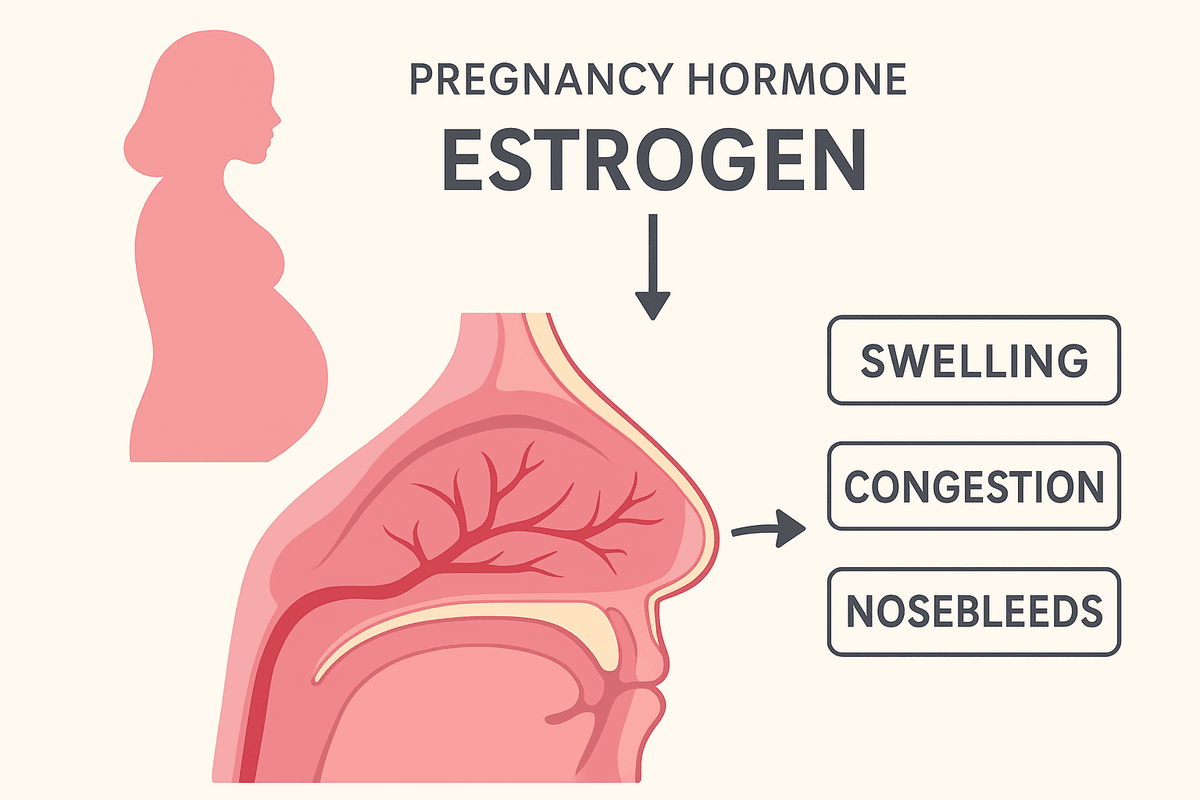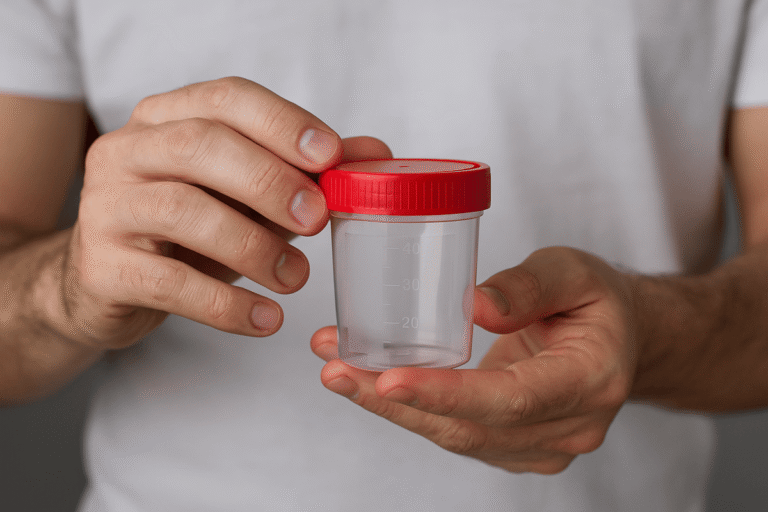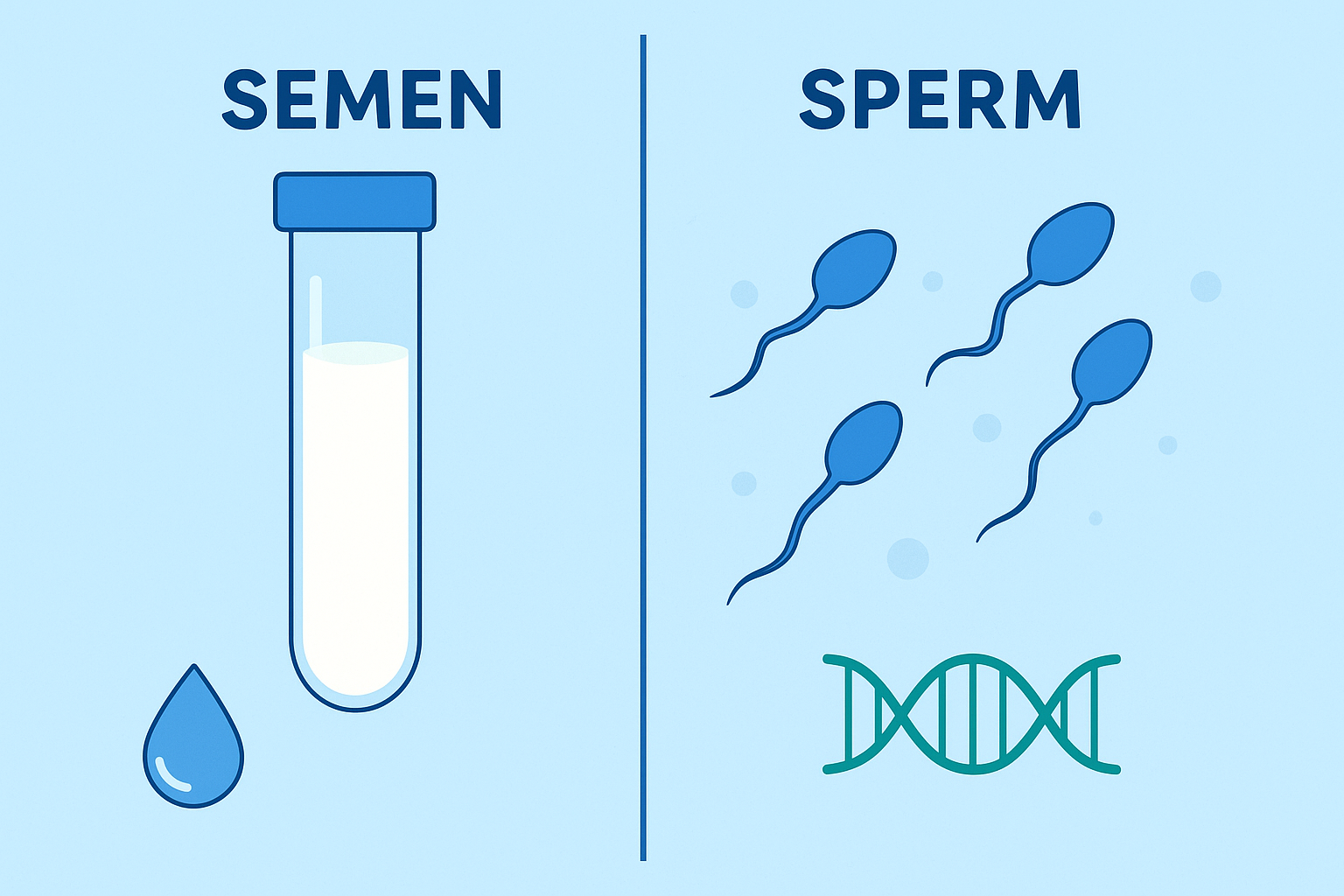Forget just the baby bump, pregnancy brings many unexpected bodily changes, some more surprising than others. One such peculiar symptom that leaves many expectant mothers puzzled, and sometimes a bit self-conscious, is the phenomenon colloquially known as “pregnancy nose.” You might look in the mirror one day and think, “Is my nose bigger? Wider? Redder?” Or perhaps you’re dealing with frustratingly frequent stuffiness or startling nosebleeds. Rest assured, you’re not imagining it, and you’re certainly not alone. This comprehensive guide dives deep into what pregnancy nose is, exploring its causes, manifestations, how to cope, and crucially, does pregnancy nose go away? Let’s demystify this strange yet remarkably common aspect of the incredible journey of raising a human.
What is Pregnancy Nose?
It’s not a single, defined medical condition, but rather an umbrella term used to describe a collection of nasal changes many women experience during pregnancy. These changes are primarily driven by the powerful hormonal shifts happening within your body. The most reported aspects include:
- Nasal Congestion (Rhinitis of Pregnancy): This is arguably the most frequent and bothersome component. It feels like a constant cold that just won’t quit – stuffiness, difficulty breathing through the nose, post-nasal drip, and sometimes sneezing.
- Changes in Nose Shape and Size: Some women notice their nose appears wider, fuller, or even slightly swollen. This is often more noticeable to the woman herself than to others.
- Increased Nosebleeds (Epistaxis): Nosebleeds during pregnancy become significantly more common due to increased blood flow and blood vessel fragility in the nasal passages.
- Altered Sense of Smell (Hyperosmia): While not a physical change to the nose itself, many pregnant women experience a heightened sense of smell, which can sometimes contribute to nausea or aversions.
The key takeaway about what is pregnancy nose is that it’s a real, physiological response to pregnancy hormones, particularly estrogen and progesterone, impacting the nasal tissues and blood vessels. It’s generally considered a normal, albeit annoying, part of the gestational experience for many.
Stop Hot Flashes Naturally
Why Pregnancy Affects Your Nose
Understanding what pregnancy nose is requires delving into the hormonal powerhouse that is a pregnant body. Two key players are responsible for most nasal changes:
- Estrogen Surge: This hormone significantly increases blood flow throughout the body, including the vast network of tiny blood vessels (capillaries) lining the nasal passages and sinuses. This engorgement causes the mucous membranes to swell, thicken, and produce more mucus, leading directly to that pervasive stuffiness and congestion characteristic of the pregnancy nose.
- Progesterone Rise: While estrogen drives the blood flow, progesterone contributes by causing general relaxation of smooth muscle tissue, including the muscles in the walls of blood vessels. This relaxation allows the vessels to expand further under the increased pressure of more blood volume. Progesterone also stimulates mucus gland production, adding to the congestion. Furthermore, progesterone plays a role in fluid retention, which can contribute to a sense of facial puffiness, sometimes making the nose appear fuller or wider, a visual aspect often included in descriptions of pregnancy nose before and after.
The combination of significantly increased blood volume during pregnancy (up to 50% more!) and these potent hormonal effects creates the perfect storm for nasal tissues to become swollen, engorged, and more prone to irritation and bleeding. It’s a direct physiological consequence of your body working hard to support your developing baby.
Also Read : Effect Of Nicotine On Sex Drive
Other Factors Amplifying Pregnancy Nose
While hormones are the primary culprits, other factors can exacerbate the symptoms of pregnancy nose:
- Increased Blood Volume: As mentioned, the sheer volume of extra blood circulating puts pressure on blood vessels everywhere, making the delicate vessels in the nose more likely to swell and rupture, contributing to congestion and nosebleeds during pregnancy.
- Dehydration: Pregnancy increases fluid needs. Dehydration can thicken mucus, worsening congestion and making nasal tissues drier and more prone to cracking and bleeding. Staying well-hydrated is crucial for managing pregnancy nose symptoms.
- Environmental Irritants: Pregnant women often become more sensitive to environmental triggers like dust, pollen, pet dander, strong perfumes, cigarette smoke, and chemical fumes. These irritants can further inflame already swollen nasal passages, intensifying congestion and potentially triggering nosebleeds during pregnancy.
- Dry Air: Especially during winter months or in air-conditioned environments, dry air can parch nasal membranes, leading to discomfort, crusting, and increased susceptibility to bleeding – adding another layer to the pregnancy nose experience.
- Pre-existing Conditions: Women with a history of allergies, chronic sinusitis, or a deviated septum may find these conditions significantly worsened during pregnancy, amplifying the overall nasal discomfort associated with pregnancy nose.
Recognizing the Symptoms of Pregnancy Nose
Pregnancy nose isn’t a one-size-fits-all experience. Symptoms can vary in type and intensity from woman to woman and even from pregnancy to pregnancy. Here’s a breakdown of the most common manifestations.
Persistent Nasal Congestion
This is the hallmark symptom. It often feels like a constant head cold, with blocked nasal passages making breathing difficult, especially noticeable when lying down. It can disrupt sleep and contribute to snoring. Unlike allergy-related congestion, pregnancy nose congestion typically isn’t accompanied by itchy eyes or throat.
Frequent Nosebleeds (Nosebleed During Pregnancy)
This is a very common and often alarming symptom. The increased blood flow and pressure, combined with the swelling and fragility of the nasal blood vessels, make them much more prone to breaking. Nosebleeds during pregnancy can range from minor spotting when blowing the nose to more significant, spontaneous bleeding. While usually not serious, frequent episodes can be distressing.
Runny Nose (Rhinorrhea)
While congestion is more common, some women experience the opposite, a constantly runny nose. This is also due to increased mucus production stimulated by hormones.
Post-Nasal Drip
Excess mucus produced in the nasal passages can drip down the back of the throat, causing a persistent tickle, cough (especially at night), sore throat, or a feeling of needing to clear the throat constantly. This is a frequent companion to congestion in pregnancy nose.
Altered Nose Appearance
Some women perceive their nose as looking wider, fuller, or slightly swollen. This is usually subtle and often more apparent to the woman herself. It’s primarily caused by a combination of skin changes (like darkening of the “mask of pregnancy” which can affect the nose), underlying tissue swelling from fluid retention and engorged blood vessels, and sometimes even slight cartilage changes influenced by hormones like relaxin. This visual change fuels the curiosity about the pregnancy nose before and after.
Heightened Sense of Smell (Hyperosmia)
While not a direct symptom of the nose changing structure, the increased sensitivity to odors is hormonally driven and intrinsically linked to the nasal experience during pregnancy. Strong smells can become overwhelming, triggering nausea or aversion, adding another dimension to nasal discomfort in pregnancy nose.
Recognize Symptoms Of Miscarriage
Coping with Pregnancy Nose
While you can’t stop the hormones, there are effective, safe strategies to manage the annoying symptoms of pregnancy nose and make yourself more comfortable.
Hydration is Paramount
Drink plenty of water throughout the day. Adequate hydration helps thin mucus, making it easier to clear and reducing congestion. It also keeps nasal membranes moist, preventing dryness, cracking, and subsequent nosebleeds during pregnancy. Aim for 8-10 glasses daily, more active, or in hot weather.
Humidify Your Environment
Using a cool-mist humidifier, especially in your bedroom at night, adds moisture to the air. This soothes dry, irritated nasal passages, loosens thick mucus, and significantly helps reduce congestion and the likelihood of nosebleeds during pregnancy.
Saline Solutions are Your Best Friend
Saline Nasal Sprays/Drops: These are perfectly safe during pregnancy and provide immediate, drug-free relief. They moisturize dry passages, flush out irritants and thick mucus, and reduce swelling. Use as often as needed. Sterile saline rinses (like neti pots or squeeze bottles) can be even more effective for deeper cleansing, but ensure you use distilled, sterile, or previously boiled (and cooled) water.
Elevate Your Head While Sleeping
Use extra pillows or a wedge pillow to prop your head up slightly while sleeping. Gravity helps reduce blood flow and swelling in the nasal passages, alleviating congestion and making breathing easier – a simple but effective pregnancy nose hack.
Steam Inhalation
Inhaling steam helps moisten nasal passages and loosen mucus. Lean over a bowl of hot water (not boiling, to avoid burns) with a towel over your head, or take a warm, steamy shower. Adding a drop or two of eucalyptus oil might help (check with your doctor/midwife first, as some essential oils are not recommended during pregnancy).
Avoid Known Irritants
Be mindful of environmental triggers. Avoid cigarette smoke (first and secondhand), strong perfumes, chemical fumes, and excessive dust. If allergies are a factor, try to minimize exposure to allergens like pollen or pet dander. Keeping windows closed during high pollen seasons and using air purifiers can help manage a pregnancy nose aggravated by allergies.
Gentle Nose Care
- Blow Gently: If you need to blow your nose, do so very gently, one nostril at a time, to avoid putting excessive pressure on delicate blood vessels and triggering a nosebleed during pregnancy.
- Apply Petroleum Jelly: Dab a small amount of petroleum jelly (like Vaseline) gently inside the nostrils to keep the skin moist and prevent cracking and bleeding. Avoid inserting it deeply.
Manage Nosebleeds (Nosebleed During Pregnancy)
- Stay Calm: Sit upright and lean slightly forward (do NOT tilt your head back, as this can cause blood to run down your throat).
- Pinch Softly: Firmly pinch the soft part of your nose (just below the bony bridge) for 10-15 minutes continuously. Breathe through your mouth. o Apply Ice: Placing a cold compress or ice pack (wrapped in a cloth) on the bridge of your nose can help constrict blood vessels.
- Avoid Straining: After a nosebleed, avoid blowing your nose, bending over, or straining for several hours.
- Seek Help if Needed: If bleeding is very heavy, lasts longer than 20-30 minutes despite pinching, or occurs frequently, consult your doctor or midwife.
Exercise (Safely)
Moderate exercise approved by your healthcare provider can help reduce nasal congestion by improving overall circulation and potentially reducing inflammation. Walking and swimming are often good choices.
Safe Medications? Proceed with Caution
Crucially, always consult your doctor or midwife before taking ANY medication, including over-the-counter (OTC) remedies, during pregnancy. While some options might be deemed safe, others are not recommended.
- Saline: As mentioned, it is always safe and highly recommended.
- Some Antihistamines: Older, sedating antihistamines like chlorpheniramine (Chlor-Trimeton) are sometimes considered an option for severe allergy-related symptoms, worsening pregnancy nose, but ONLY under strict medical guidance. Newer non-sedating types (like loratadine or cetirizine) may also be considered, but professional advice is essential.
- Decongestants: Use is generally more restricted:
- Oral Decongestants (Pseudoephedrine, Phenylephrine): Often avoided, especially in the first trimester, due to potential concerns about blood flow to the placenta. Use later in pregnancy only if necessary and explicitly approved by your doctor.
- Topical Nasal Decongestant Sprays: Should be used with extreme caution and ONLY for a maximum of 3 days. Longer use can cause severe rebound congestion (rhinitis medicamentosa), making pregnancy nose congestion dramatically worse than before. They are generally not recommended as a primary solution.
- Steroid Nasal Sprays: Some corticosteroid nasal sprays (like budesonide – Rhinocort) are sometimes prescribed by doctors for severe pregnancy rhinitis as they are minimally absorbed systemically. Never use them without a prescription and explicit instructions from your healthcare provider. The safest approach remains non-medical management: saline, humidity, hydration, and avoiding irritants.
Does Pregnancy Nose Go Away?
This is the million-dollar question for many experiencing this peculiar symptom: Does a pregnancy nose go away? The answer, thankfully for most, is a resounding YES.
- Timeline: The symptoms of pregnancy nose, such as congestion and nosebleeds, typically begin to resolve relatively quickly after childbirth. As your hormone levels rapidly drop back towards pre-pregnancy states (within days to weeks), the increased blood volume also gradually decreases. This allows the engorged blood vessels in your nasal passages to shrink, swelling to subside, and mucus production to normalize.
- How Long? Most women notice significant improvement within the first few weeks postpartum. Nasal congestion often lifts noticeably within days of delivery. Nosebleeds usually stop shortly after birth. The perception of a wider or fuller nose also resolves as facial fluid retention subsides, and blood flow normalizes. By six weeks postpartum, when most women have their postnatal check-up, pregnancy nose symptoms are usually completely gone.
Pregnancy Nose Before and After: For the vast majority, the pregnancy nose before and after story has a happy ending. Your nose should return to its pre-pregnancy appearance and function. While the experience of congestion, bleeding, and altered smell is very real during pregnancy, it’s almost always a temporary state. There is no scientific evidence to suggest that pregnancy permanently changes the structure or size of the nose in the long term. The concept of a permanent “pregnancy nose before and after” difference is largely a myth.
Embracing the Changes: A Temporary Part of the Journey
Pregnancy nose, with its stuffiness, unexpected nosebleeds, and sometimes altered appearance, is undoubtedly one of the strangers and less glamorous side effects of growing a baby. However, understanding what pregnancy nose is, a direct result of powerful hormones and increased blood flow working to support your developing child, can make it feel less alarming. While frustrating, it’s a testament to the incredible adaptations your body is undergoing. Remember the key strategies: prioritize hydration, embrace saline and humidity, avoid irritants, care for your nose gently, and always consult your healthcare team about medications.
Also Read: Connection Between Vitamin D and Erectile Dysfunction
Most importantly, take comfort in knowing that the answer to “does pregnancy nose go away” is overwhelmingly positive. This peculiar symptom is almost always a temporary passenger on your pregnancy journey. Your nose, both in function and appearance, will very likely return to its familiar self in the weeks following your baby’s arrival, leaving the concept of pregnancy nose before and after as just another fascinating, albeit slightly swollen, chapter in your remarkable story of motherhood.




